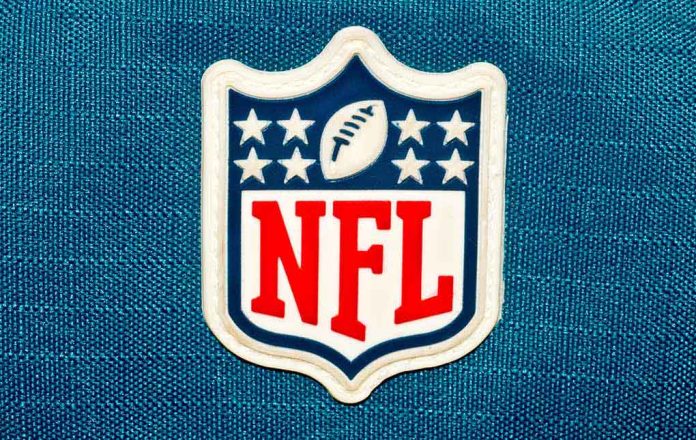
LeShon Eugene Johnson, once hailed as a comeback kid of the NFL, now faces federal charges for running a large-scale dog fighting operation.
Key Takeaways
- Ex-NFL player LeShon Eugene Johnson faces new charges related to dog fighting in Oklahoma.
- Johnson was previously charged in 2004 for a similar dog fighting operation.
- FBI agents seized 190 dogs from Johnson’s property in October 2024.
- The operation was allegedly run under “Mal Kant Kennels” in Oklahoma.
- If convicted, Johnson could face significant prison time and financial penalties.
Federal Charges Against Johnson
LeShon Eugene Johnson, the former NFL running back, has been charged with a dog fighting operation that could land him in prison for years. Federal investigations led to the seizure of 190 dogs from his Oklahoma properties, marking the largest such intervention in federal history. Once a celebrated figure for overcoming cancer to return to the football field, Johnson now faces federal Animal Welfare Act charges, impacting a formerly revered career.
Federal law enforcement, focusing on dismantling illegal animal fighting networks, alleges that Johnson ran “Mal Kant Kennels,” a front for breeding and trafficking fighting dogs. Since October 2024, the operation culminated in significant measures against Johnson, indicating broader law enforcement initiatives to target such illicit activities. In the past, Johnson faced guilt in a 2004 dog fighting case, marking a pattern of repeated illegal conduct.
Further Background on Johnson’s Activities
Johnson’s recent charges emphasize a history marked by controversy. Previously convicted in 2004 for operating “Krazyside Kennels,” Johnson’s involvement shed light on illicit activities spanning years. These past charges involve similar accusations of animal cruelty, highlighting the systemic issue of animal fighting that plagues parts of America. Now, he faces up to five years for each federal count and fines of $250,000, spotlighting the severe implications of these offenses.
“Animal abuse is cruel, depraved, and deserves severe punishment,” said Attorney General Pamela Bondi. “The Department of Justice will prosecute this case to the fullest extent of the law and will remain committed to protecting innocent animals from those who would do them harm.”
Johnson’s reputation, already marred by previous allegations, takes another hit as his case proceeds through the legal system. Enforcement officials involved assert that his arrest is crucial in disrupting the network of dog fighting, often masked by legitimate operations. The spotlight now shines on Johnson’s role in possibly expanding the dog fighting industry, revealing the extensive pipelines that finance and proliferate this inhumane practice.
Wider Implications and Community Reactions
The case against Johnson deeply resonates, bringing stark awareness to the ongoing efforts required to combat unethical animal fighting. United States Department of Justice representatives boldly emphasized prosecuting his case, aiming to dismantle networks fostering cruelty. Furthermore, the case underlines the law enforcement strategy to prevent the propagation of illicit animal fighting through prosecution of high-profile individuals.
“His trafficking of fighting dogs to other dog fighters across the country contributed to the growth of the dog fighting industry and allowed Johnson to profit financially,” said DOJ officials.
As a former NFL player, Johnson’s downfall serves as a grim reminder of the reach and influence of illegal animal trafficking. While once part of celebrated sports moments, his involvement now highlights the legal and social repercussions facing individuals perpetuating such enterprises. His case is instrumental in portraying the broad impacts and moral imperative to see such operations dismantled, alongside presenting a continuous narrative on the importance of enforcing animal welfare laws nationwide.





